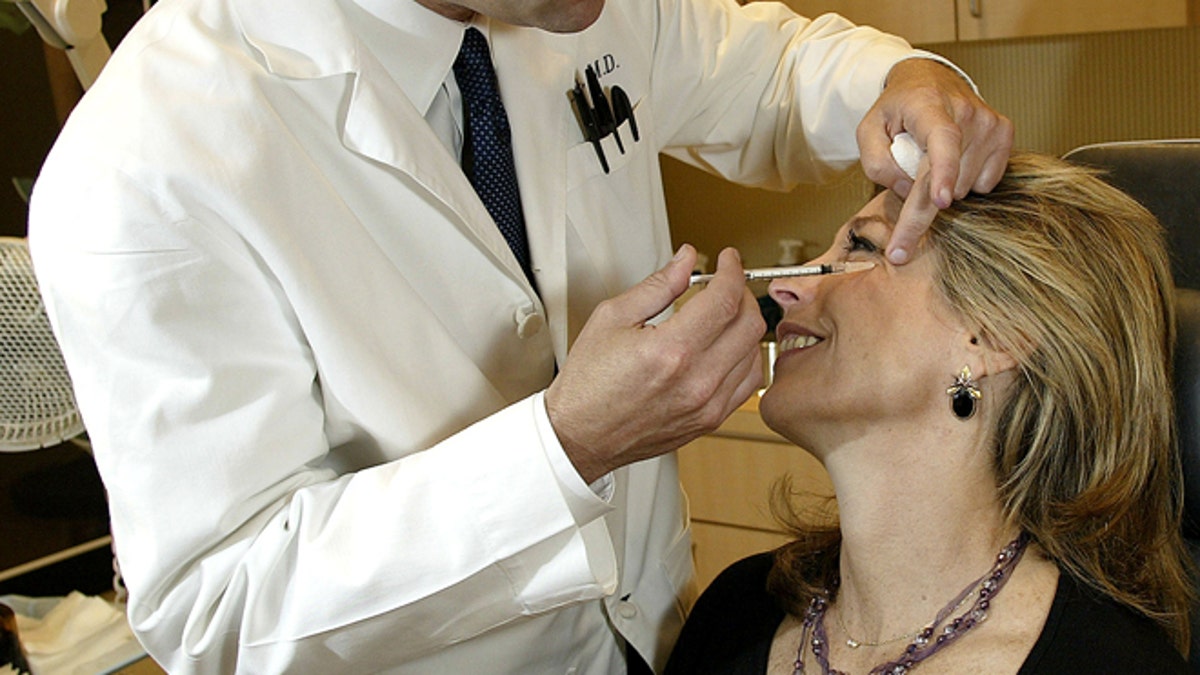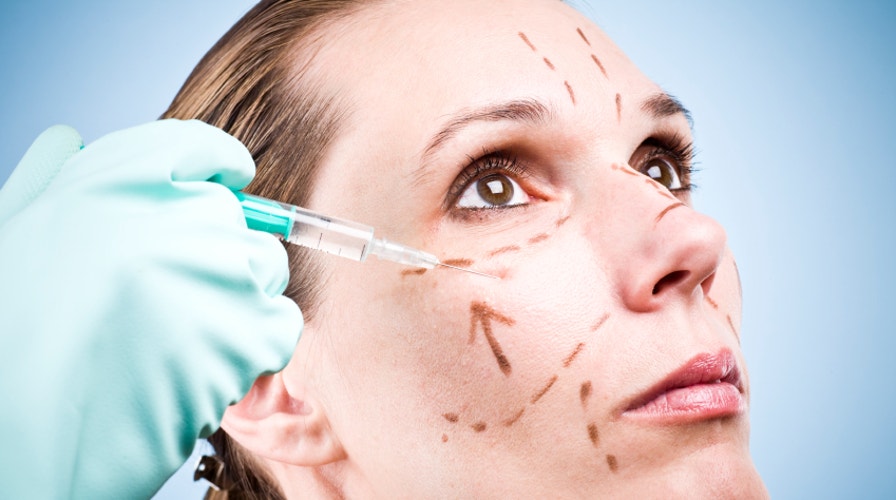Fox News Flash top headlines for August 15
Fox News Flash top headlines are here. Check out what's clicking on Foxnews.com.
Whether the camera lies or not, Americans seeing their own faces on it as video-conferencing apps take the place of in-person conversations during the coronavirus pandemic, are craving cosmetic enhancement.
Now that the option of elective surgeries has been restored, they're crowding appointment books at a time when many other medical fields are trying to regain their footing after lockdowns, according to a Friday report in The New York Times.
SUICIDAL THOUGHTS IN US ADULTS NEARLY DOUBLED IN JUNE, CDC SAYS
Patients say they believe quarantine is the perfect time for a "nip and tuck," especially as face masks and isolation provide the opportunity to both stay safe and hide any work.
During a devastating economic recession, the trend is somewhat surprising. Cosmetic procedures are generally not covered by insurance and the bill can range from a couple of thousand dollars for eyelid surgery or a facelift to $25,000 for a whole body makeover.

(Photo by Don Murray/Getty Images)
Recent patrons of cosmetic surgeons explained that because they no longer have the ability to spend on travel, ticketed events or other luxuries, they've been able to redirect their spending.
Before the infectious disease gripped the United States, cosmetic surgery had been on the decline. Instead, Americans favored minimal tweaks, like lip-fillers and Botox injections.
The American Society of Plastic Surgeons says that over the past 20 years, the number of injectable procedures has seen an increase of 878%, while facelifts and eyelid surgeries have fallen.
One doctor told the Times she had "never done so many facelifts in a summer as [she'd] done this year" and that "pretty much every facelift patient that comes in says '[they've] been doing these Zoom calls and ... look terrible.’"
The pandemic has predictably hurt mental health in the U.S.
An even heavier reliance on social media to fill downtime for those in solitude coupled with unhealthier habits and the constant use of Zoom and FaceTime makes for a dangerous combination.
At the beginning of the month, NBC News reported that Zoom users around the world were experiencing worsened symptoms of body dysmorphia during their frequent video calls.
Additionally, in a study released Thursday by the Centers for Disease Control and Prevention, nearly 11% of U.S. adults reported seriously contemplating suicide in June and 40% admitted to struggling with mental health or substance abuse issues related to the pandemic.
CLICK HERE FOR THE FOX NEWS APP
One in four young adults between the age of 18 and 24 also reported having seriously considered suicide in the 30 days before completing the same survey.
If you or someone you know is in crisis, call the National Suicide Prevention Lifeline at 800-273-8255, text HOME to 741741, or visit SpeakingOfSuicide.com/resources for additional resources.






















